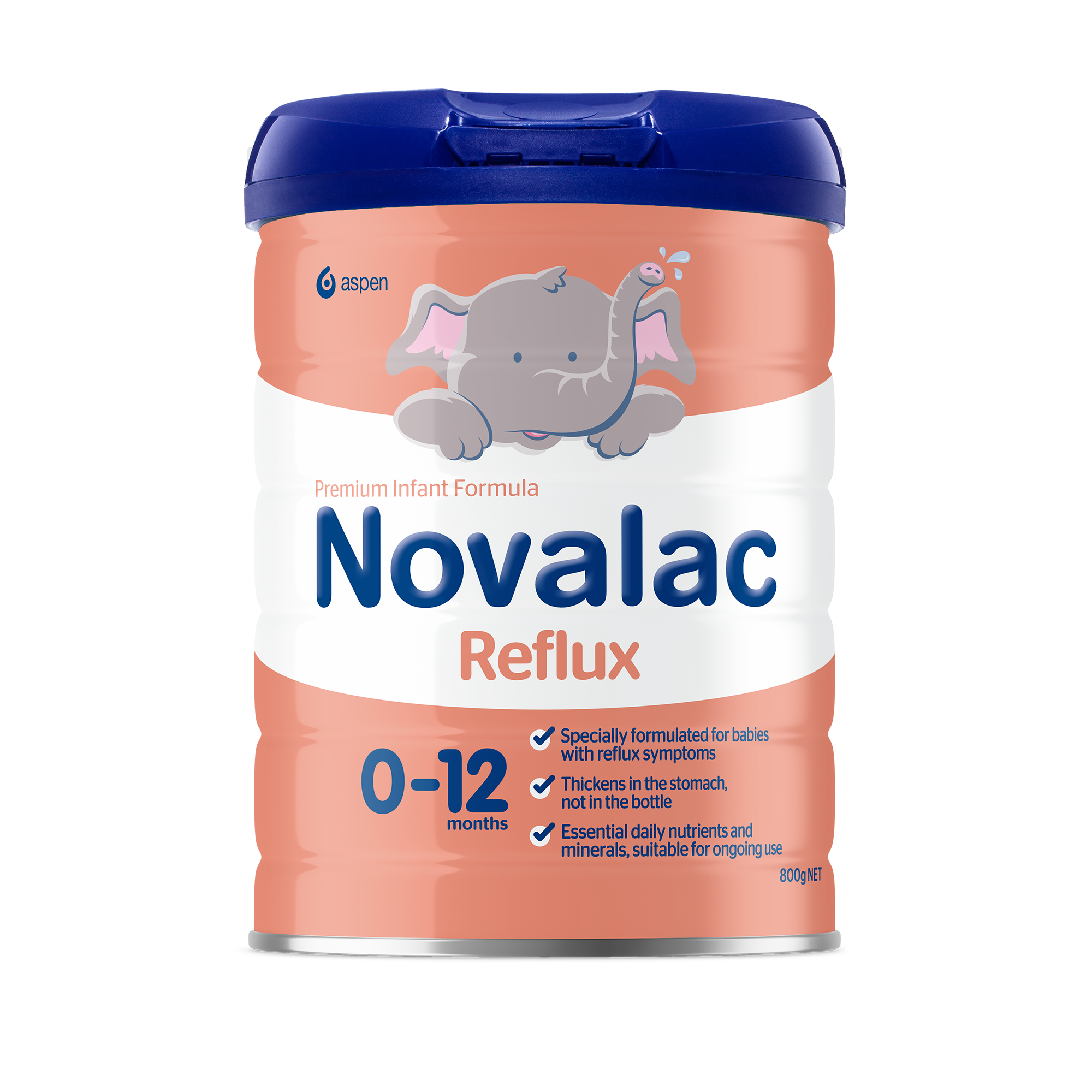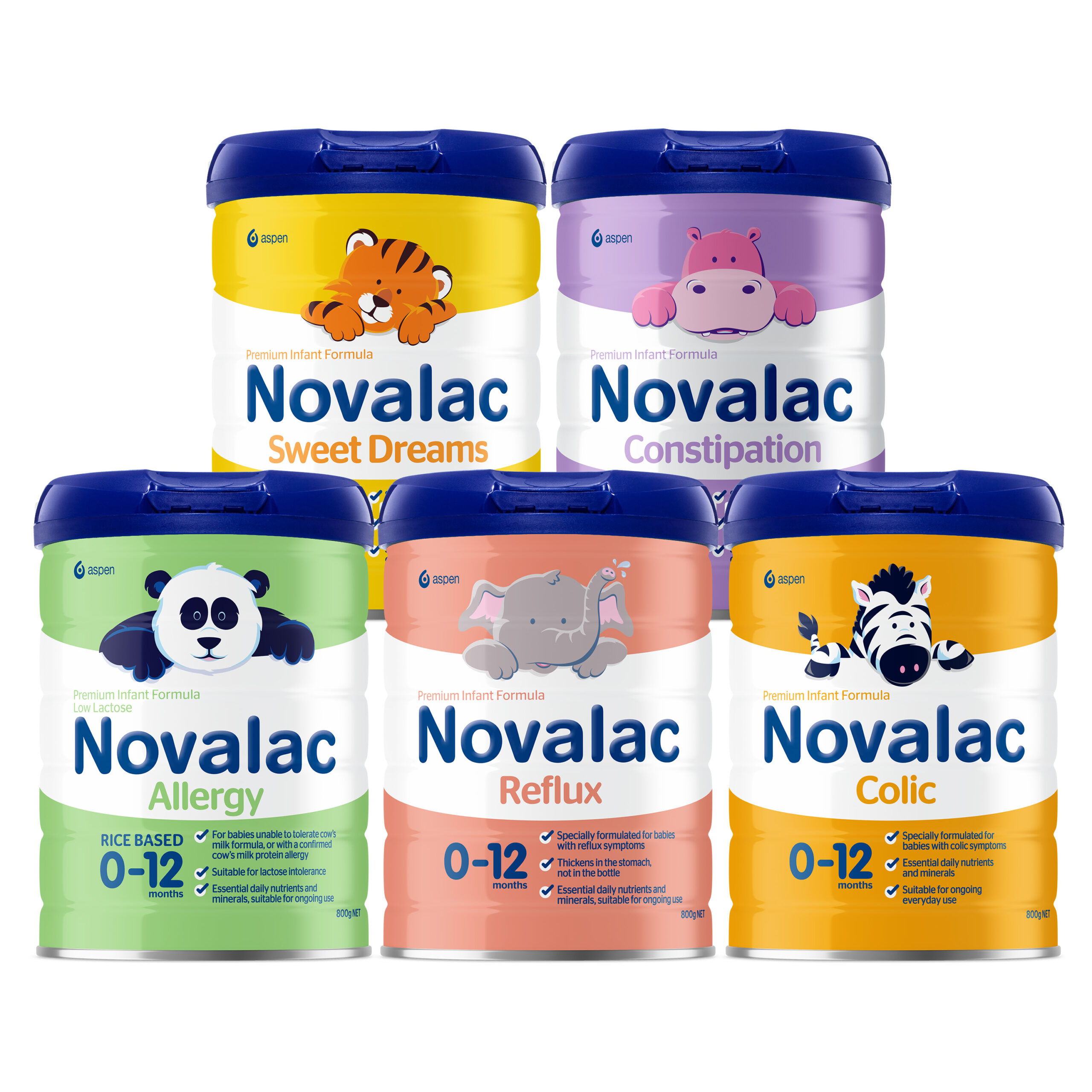Reflux in Babies
Nearly 7 in 10 babies will experience regurgitation at some point, which may make them reluctant to feed.
What is reflux?
Infant reflux happens when a baby’s stomach contents escape back up into their oesophagus (food pipe), causing a baby to “spit up” milk or vomit. Reflux usually happens soon after a feed.
Regurgitation is very common and affects around two-thirds of babies1. Although some babies with reflux do not seem upset by it, stomach acid can escape into the oesophagus along with food. This is why reflux is sometimes called “acid reflux”, and can cause pain and irritation. Babies may become reluctant to feed or refuse to continue feeding even when they’re still hungry, which can make them cranky in between feeds as well.
What causes reflux?
Young babies may have an immature or weak valve between their stomach and the oesophagus. This may allow the stomach contents to escape through the valve back into the oesophagus.
As the valve linking the stomach and oesophagus matures, the signs of reflux lessen. By the time babies are 12–18 months of age, symptoms will usually have resolved altogether.
What are the symptoms of reflux in babies?
Symptoms of reflux include:
- Frequent spitting up, milk vomit, gulping or a reflux cough
- Projectile vomiting
- Sudden bursts of crying as though in pain while feeding or soon after a feed
- Difficulty sleeping or staying asleep
- Arching the back, pulling up the legs, stiffening or screaming while feeding
- Reluctance to feed or refusing to feed while still hungry
What is silent reflux in babies?
Silent reflux is where the food that escapes through the reflux valve does not make it far enough up into the oesophagus to be forced out of the mouth, and so there are no obvious signs of reflux such as regurgitation.
Signs of silent reflux in babies are similar to non-silent reflux, but without obvious spitting up, vomiting, or regurgitation. You may hear your baby reflux or notice them swallowing repeatedly, even when there are no outward signs of reflux.
How is reflux managed?
It’s important to talk to a healthcare professional for advice on how to managed in babies. If your baby’s reflux is interfering with their feeding or causing them distress, it is important to talk to your doctor or healthcare professional for advice on reflux remedies or a reflux formula that may help your baby.
What else can I do?
You can also consider the following lifestyle changes:
- Avoid clothing and nappies that are too tight
- Don’t put your baby to bed immediately after feeding
- Try giving smaller feeds at more frequent intervals
- After a feed, put your baby in an upright position and “burp” your baby if possible
1. Vandenplas Y et al. Acta Paediatr 1998;87:462-468

NOVALAC REFLUX
Learn more about Novalac Reflux




